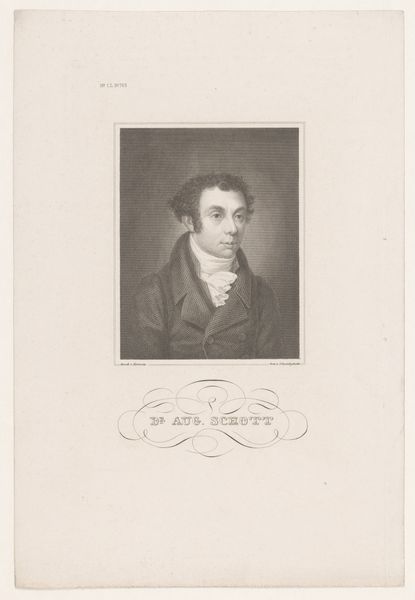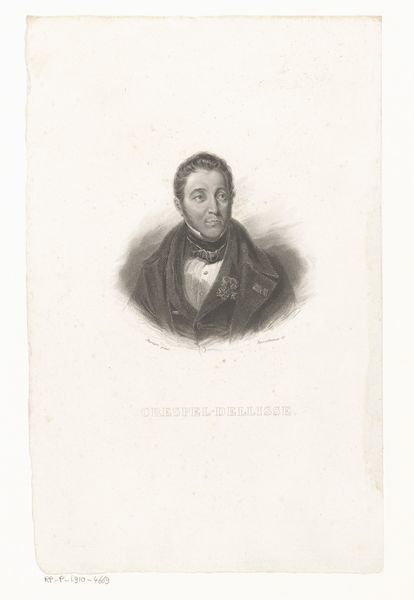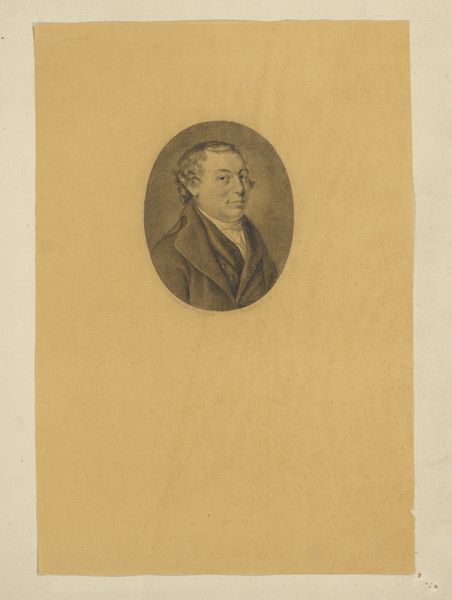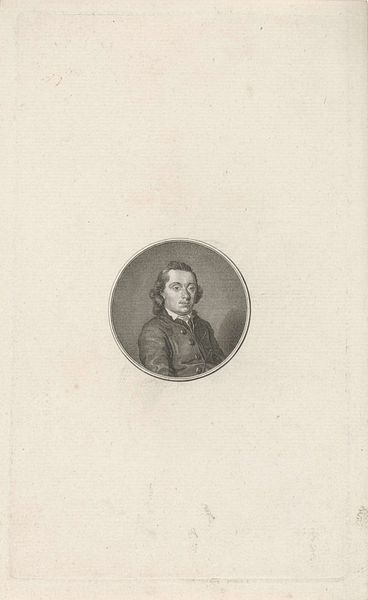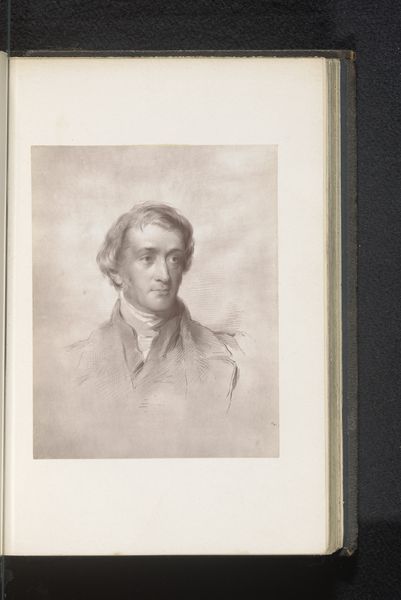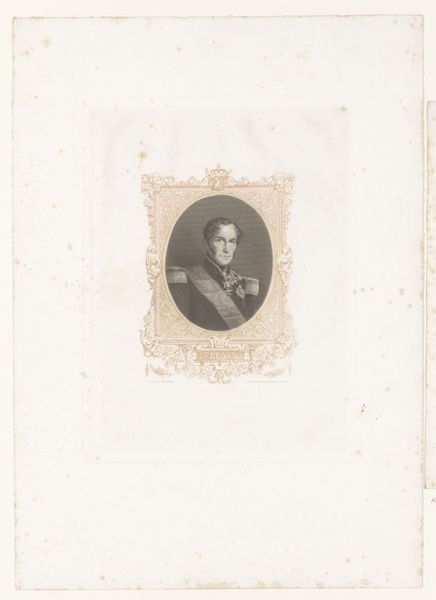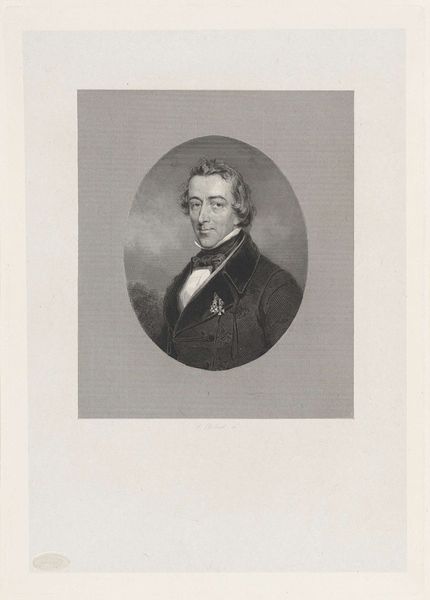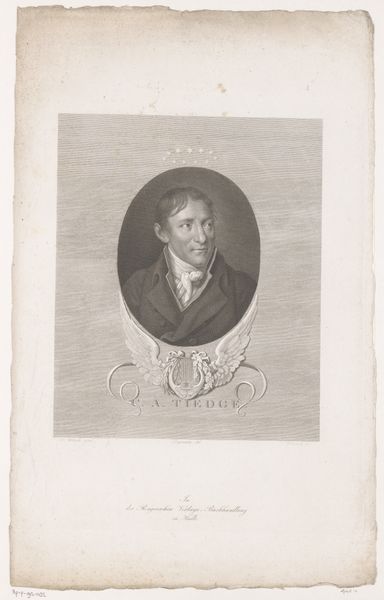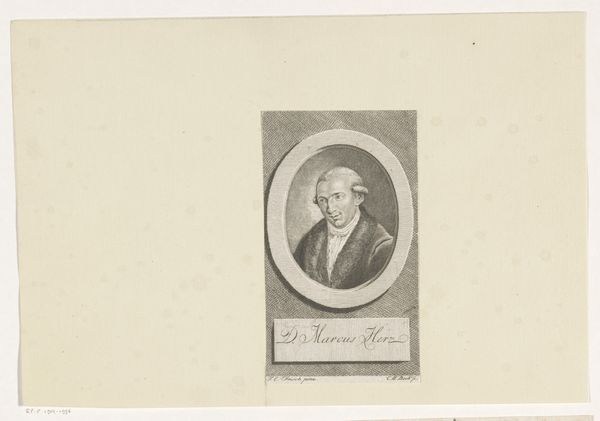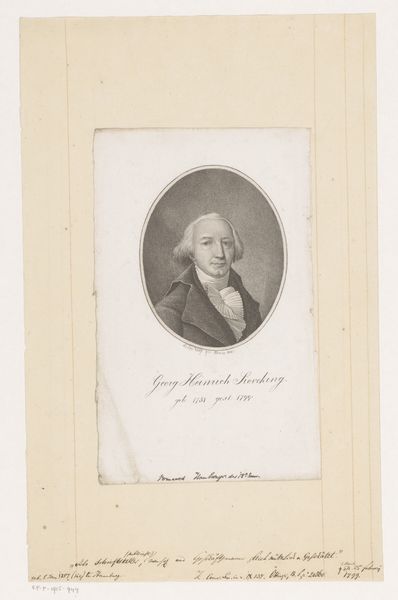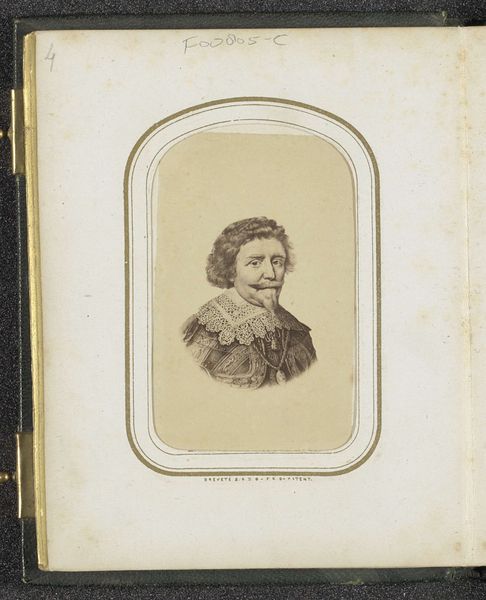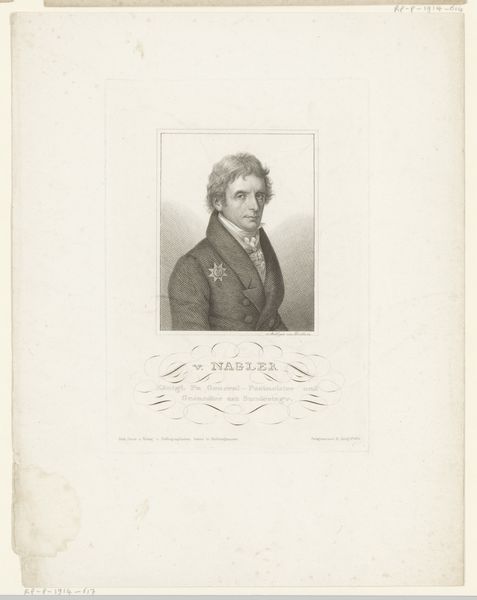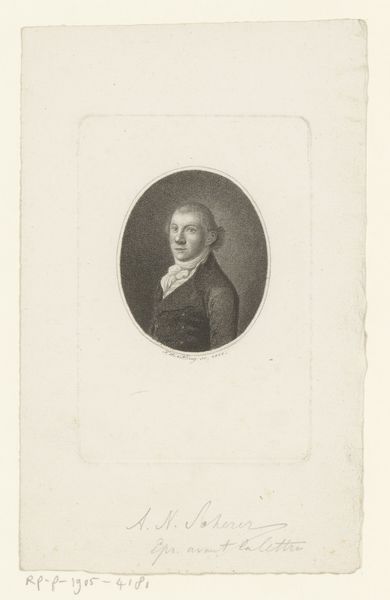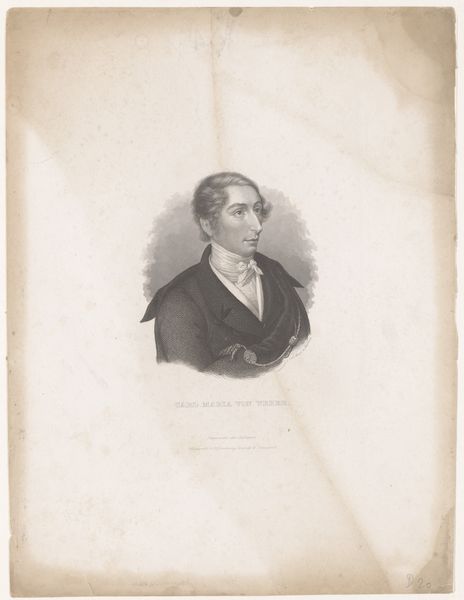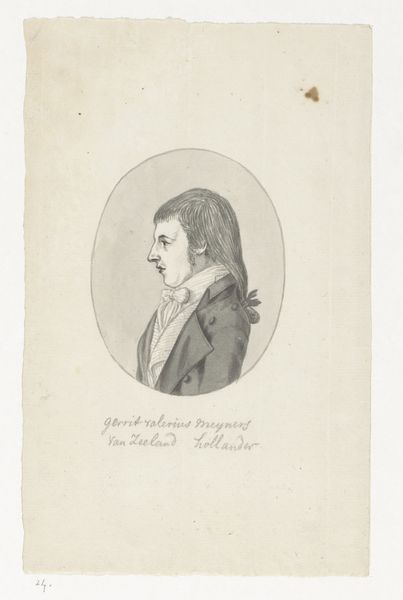
painting
#
portrait
#
painting
#
figuration
#
romanticism
#
men
#
united-states
#
academic-art
#
miniature
Dimensions: H. 2 5/16 in. x 1 7/8 in. (5.9 cm x 4.8 cm)
Copyright: Public Domain
Editor: This is James Reid Lambdin's "Portrait of a Gentleman," painted in 1831. It's such a small, intimate work. What strikes me is the direct gaze and almost…challenging expression. How do you interpret this portrait? Curator: Well, beyond the individual depicted, I see this miniature as a potent symbol of early 19th-century American identity construction. Think about the context: the United States is relatively young, still defining itself on the global stage. How do elite portraits, especially miniatures, contribute to establishing a national image of power and refinement? Editor: That's interesting. I hadn't thought about it in terms of nation-building. Does the man's clothing play a role? It looks pretty standard for the time. Curator: Precisely. While seemingly conventional, the dark suit and meticulously tied cravat speak to an emerging middle class and a particular standard of masculine respectability. Who was afforded the opportunity to present themselves in this way, and what power dynamics are embedded within such portrayals? Editor: So, you're suggesting this portrait is not just about this one man, but about a whole set of social and political ideas? Curator: Exactly. It invites us to consider the narrative being crafted. Consider how this portrait might differ if the subject were a woman, or a person of color, given the time period and social hierarchies. Editor: That makes so much sense. I guess portraits, even miniatures, are never really just neutral depictions, are they? Curator: Never. And interrogating those implied narratives opens up crucial dialogues about representation and power that are still incredibly relevant today. Editor: I'll definitely look at portraits differently now! Curator: Wonderful. That’s the power of contextualizing art: seeing beyond the surface to understand its complex and enduring influence.
Comments
No comments
Be the first to comment and join the conversation on the ultimate creative platform.
